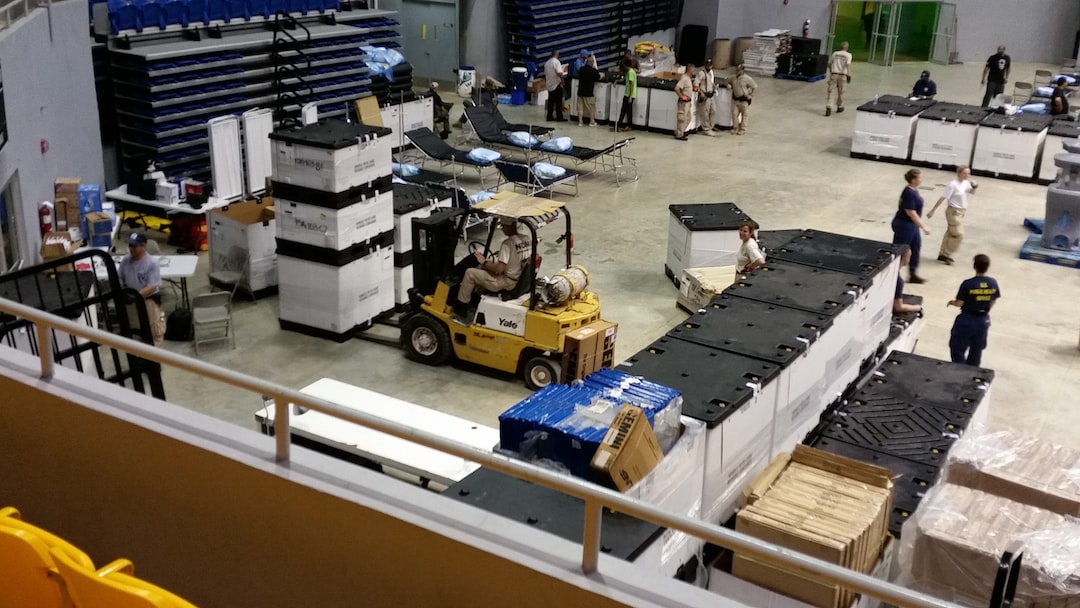How Automation is Revolutionizing the Manufacturing Industry
Automation has been transforming the manufacturing industry for several years now, and its impact is only set to increase. From robotic arms in assembly lines to automated warehouse solutions, the integration of automation technology is revolutionizing how products are made. This blog post will explore how automation is reshaping the manufacturing sector and the benefits it offers.
Increased Efficiency and Productivity
One of the most significant advantages of automation in manufacturing is increased efficiency and productivity. By replacing manual labor with automated machines, manufacturers can significantly speed up production processes. Machines can work tirelessly around the clock, without the need for breaks or rest. This improves overall production capacity while reducing manufacturing lead times, thus enabling companies to meet customer demands in a timely manner.
Moreover, automation allows manufacturers to achieve high levels of precision and accuracy in their production processes. Robots are programmed to perform repetitive tasks with consistent precision, minimizing errors that may occur due to human involvement. This not only ensures product quality but also reduces waste, as machines can minimize material usage during production.
Enhanced Safety
The integration of automation technology in the manufacturing industry has been a game-changer in terms of worker safety. Dangerous and repetitive tasks that were once carried out by humans can now be performed by machines, eliminating the risk of accidents and injuries. As a result, workplace safety has improved dramatically, leading to a decrease in worker compensation claims and a boost in employee morale.
Furthermore, advanced sensing technologies incorporated into automation systems can detect potential hazards and respond immediately, preventing accidents and damage to equipment. This proactive approach to safety minimizes the likelihood of workplace incidents and ensures a secure working environment for all employees.
Improved Quality Control
Automation plays a crucial role in maintaining consistent product quality. By utilizing sensor technologies, machines can detect and monitor various quality indicators during the manufacturing process. This enables real-time identification of any deviations or abnormalities, allowing manufacturers to take immediate corrective actions.
Automated quality control eliminates the subjectivity and human error that may occur in manual inspections. As a result, defective products can be identified and removed from the production line promptly, reducing the likelihood of defective items reaching the market and damaging a brand’s reputation. Consistent high-quality products also lead to increased customer satisfaction and loyalty.
Lower Production Costs
While the initial investment in automation technology may be high, the long-term benefits outweigh the costs. Implementing automation in manufacturing processes can significantly reduce production costs over time. It eliminates the need for extensive human labor, thereby reducing labor costs. Additionally, automation optimizes material usage, ensuring minimal waste and lower material expenses.
Moreover, automation enables predictive maintenance, as machines can monitor their own performance and identify potential issues before they cause significant problems. This proactive maintenance approach reduces downtime and costly breakdowns, further contributing to cost savings.
Job Creation and Reskilling Opportunities
Contrary to popular belief, automation is not a threat to jobs in the manufacturing industry. While some repetitive and mundane tasks may be taken over by machines, automation creates new job opportunities and allows workers to focus on more complex and higher-skilled roles.
With the integration of automation, manufacturers require skilled workers to operate, maintain, and program the machines. This creates a demand for individuals with expertise in robotics, programming, and data analysis. This shift in job requirements presents an opportunity for reskilling and upskilling the existing workforce, ensuring they can adapt to the changing needs of the industry.
In conclusion, automation is transforming the manufacturing industry in various ways. From increased efficiency and productivity to enhanced safety and quality control, automation offers a multitude of benefits for manufacturers. The integration of automation technology is not only driving cost savings but also creating new opportunities for job growth and advancement. As automation continues to evolve, it will undoubtedly revolutionize the manufacturing industry and pave the way for innovative and efficient production processes.

